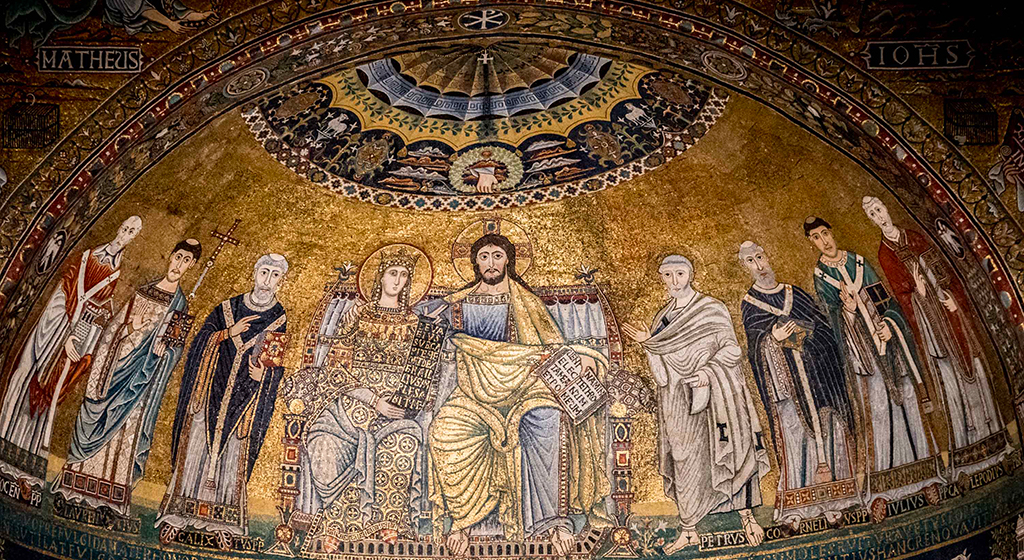Memory of the Church
Reading of the Word of God
Alleluia, alleluia, alleluia
I am the good shepherd,
my sheep listen to my voice,
and they become
one flock and one fold.
.
Alleluia, alleluia, alleluia
John 13,16-20
'In all truth I tell you, no servant is greater than his master, no messenger is greater than the one who sent him. 'Now that you know this, blessed are you if you behave accordingly. I am not speaking about all of you: I know the ones I have chosen; but what scripture says must be fulfilled: 'He who shares my table takes advantage of me. I tell you this now, before it happens, so that when it does happen you may believe that I am He. In all truth I tell you, whoever welcomes the one I send, welcomes me, and whoever welcomes me, welcomes the one who sent me.'
Alleluia, alleluia, alleluia
I give you a new commandment,
that you love one another.
Alleluia, alleluia, alleluia
The Gospel passage we heard brings us into the upper room. Jesus had just finished washing his disciples' feet. He wanted that it be a teaching that showed how far his love for them went. His aim was clear: he wanted this type of love to exist between his disciples of then and of always. Bending to wash one another's feet must be the highest possible qualification for whoever wanted to be his disciple. Solemnly he tells them: "Servants* are not greater than their master, nor are messengers greater than the one who sent them." Jesus' disciples are called to behave according to the logic of washing one another's feet. It was the most evident way to show concretely how to love others. And in this responsibility of giving one's life is hidden the joy of the faithful: "If you know these things, you are blessed if you do them." The sentence that the apostle Paul reported to the elders of Ephesus confirms this perspective: "It is more blessed to give than to receive" (Acts 20:35). It is a Christianity that finds its joy in loving others, in spending its life for the Gospel. Not that this comes without labour and sacrifice, but communicating the Gospel gives us the greatest joy because we are participating in God's great plan of love for the world. Jesus, knowing the weakness of his disciples, warns them of the difficulties they will face: In that moment, they will have to resist the snares of evil that wants to pull them from the good hands of the Master. It is decisive to remain connected to Jesus in every way. The problem is not to be without sin, but to put our hope in Jesus and also the hope to allow ourselves to be forgiven when we distance ourselves from him. The evangelist seems to suggest the solemnity of Jesus' epiphany: "I tell you this now, before it occurs, so that when it does occur, you may believe that I am he." The phrase "I am he" harkens to the voice Moses heard from the burning bush. Essentially, by listening to Jesus, we are listening to the very voice of the Father in heaven. Whoever welcomes Jesus as the Lord, welcomes the Father who is in heaven.
